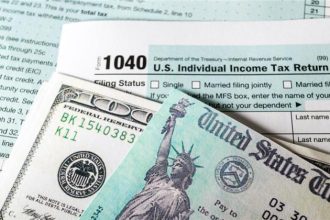It’s never too late to turn over a new leaf with your financial habits. Keeping a positive and proactive attitude after a financial mistake is key to managing credit card debt. Learn more about how to make the most of a bad financial decision.
Learning from a Financial Mistake
Unfortunately, a lot of learning in life comes from making mistakes. How you handle the experience can make all the difference in the lessons you take away from it.
For example, you have trouble with the snooze button. You repeatedly show up late to work and are fired over it. If you fail to see your own responsibility in this scenario and blame others, you won’t be able to move forward in the right direction.
Many financial mistakes happen with overspending and under-saving. Let’s consider some basic financial counseling principles to find out how you can recover from these two mistakes.
Financial Mistake 1: Credit Card Debt
If you are only making minimum payments or have maxed out several credit cards, it’s time to get back to the basics. First, understand that your credit limit isn’t actually money. You are borrowing money from the creditor to buy things. Next, the best practice for using credit cards is to pay off the entire balance at the end of the month. Finally, make sure you fully understand all the terms, interest rates and features of your card. This way you can avoid fees, interest rate hikes and maximize rewards. You may also discover that you need to close a few cards. Yes, this may hurt your credit score a little, but it will come back up.
Need some more practical applications to manage credit card debt? If you tend to overshop, avoid debt by eliminating credit cards from your wallet. Or avoid the stores that you splurge in regularly. Find ways to curb your behaviors. If you ran into large medical bills or unexpected repair costs, you should consider starting an emergency fund. Credit counseling can be another helpful resource if you have questions.
Financial Mistake 2: No Emergency Fund
The next financial mistake is under-saving. Emergency funds, rainy day funds, retirement and other financial goals all require you to not only save but to have a plan. Let’s focus on building an emergency fund to offset unplanned financial costs and consumer debt.
Emergency funds are a great financial tool to combat debt. Dedicating money for emergencies is really important when unexpected things come your way. If your car breaks down, the refrigerator dies, you get laid off and your cat needs to go to the vet all in one week, you’ll wish you had money earmarked for such events. Put away a little money each month. You can also direct any extra income towards your savings, like tips, tax returns, or money made from selling personal items.
Remember, mistakes can help us be better. Use these unfortunate situations to your advantage by learning and growing.
If you’re struggling to pay off debt, ACCC can help. Schedule a free credit counseling session with us today.
Read the full article here
















